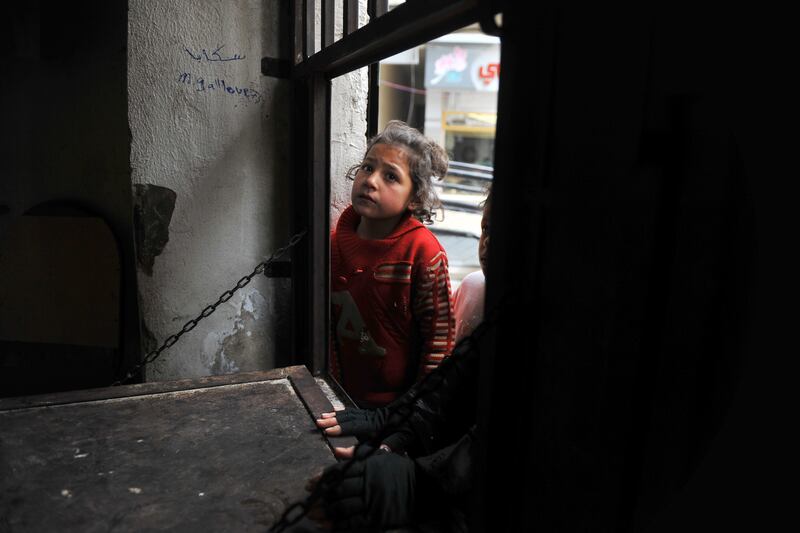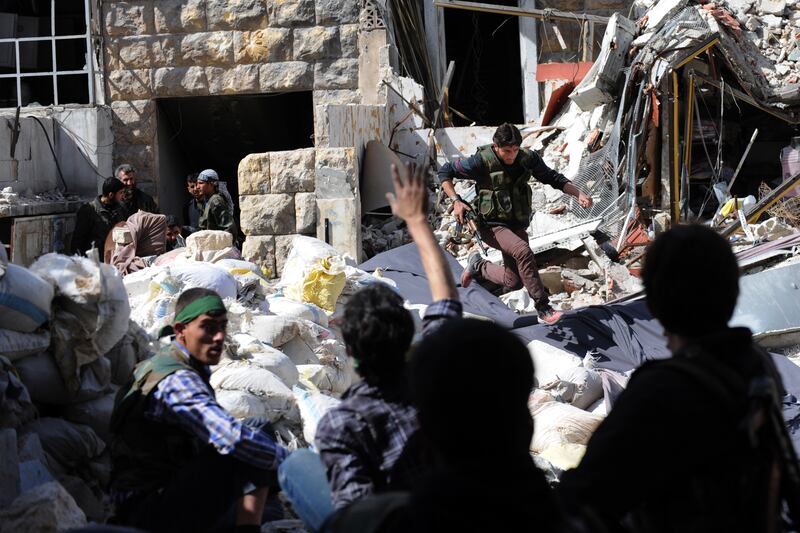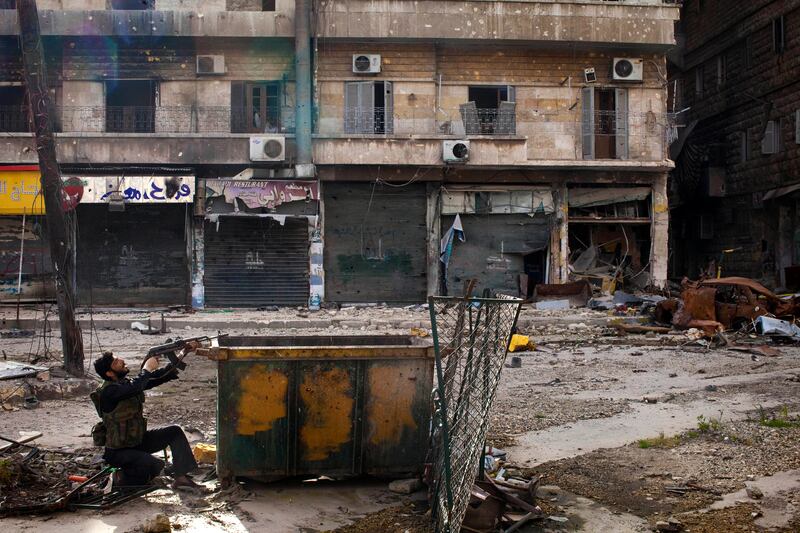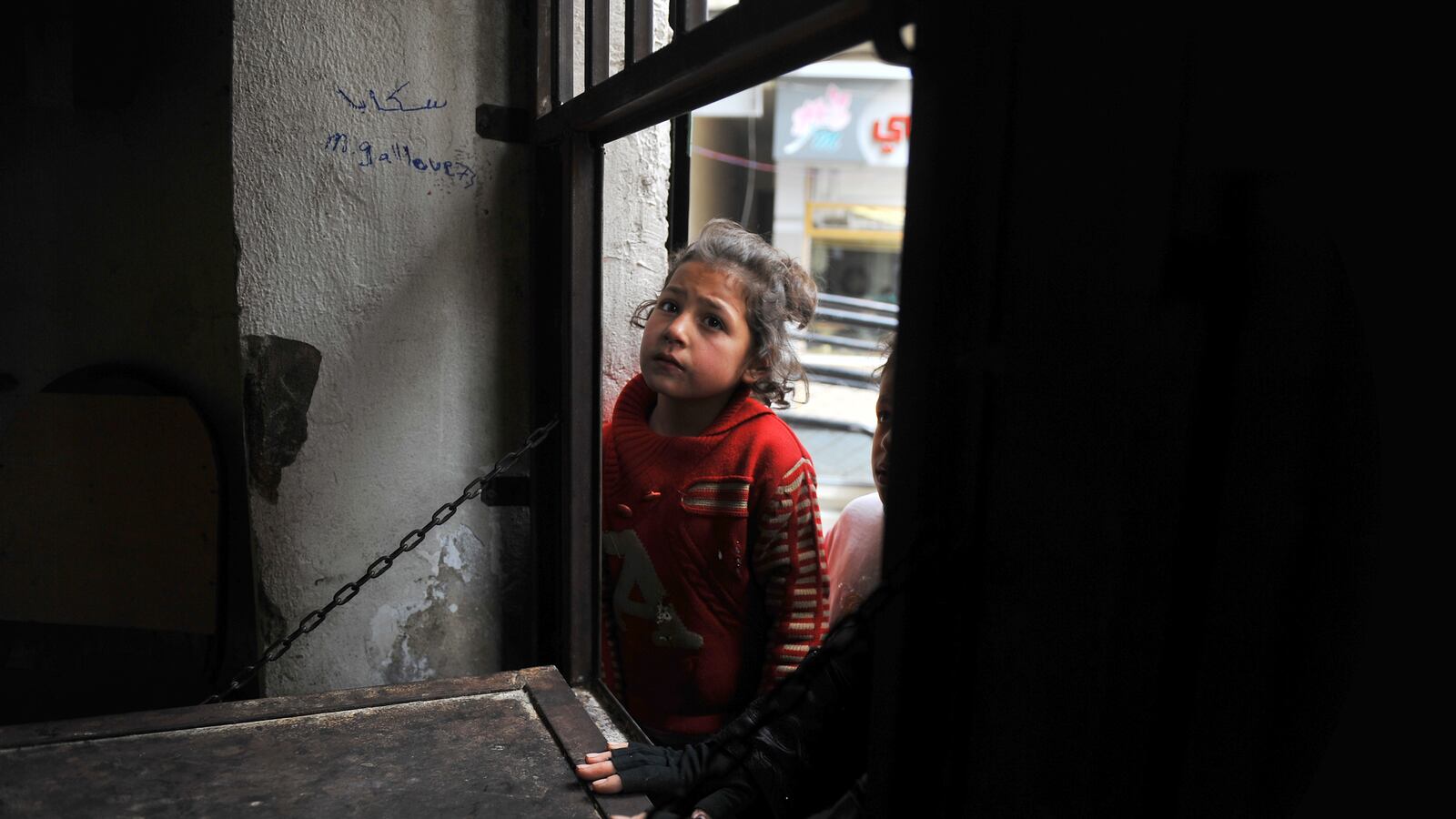Before this trip, I had traveled to Syria 15 times over the last two years and had visited Damascus, Homs, and Idlib, but skipped Aleppo, as I felt there had been so many journalists in the city.

I didn’t have a particular film in mind, but I did want to make a documentary focused on civilians and hoped I could make one without a single fighter in it. (The film was produced by Channel 4 News in Britain.) I was interested because many civilians were deciding to go back to Aleppo, but the danger is still there. There are still airstrikes and now Scud-missile attacks, and bodies of executed people are being pulled out of the river.
When you first walk through the streets, you think everything is normal. But then the danger hits, and, of course, you see a city filled with garbage. There were no garbage collectors. But the people started to organize themselves and clean up the streets, and this was a process that picked up day by day, and I wanted to explore who was doing this.
I found there was a competition under way between different groups. There are relief groups run by moderates and those organized by radical Islamists, such as Jabhat al-Nusra, the group dubbed a terrorist organization by the Obama administration because of links with al Qaeda. So you see streets being cleaned by al-Nusra and schools organized by al-Nusra and also more moderate groups cleaning streets and operating schools. There was a rivalry going on.
Who is winning? I met more people who explained their moderate ideas, but radical Islamists are doing well; they are very efficient and have more funds. The radical Islamists are very smart also in basing their fighters outside the city and just having their relief workers inside Aleppo. Most civilians are saying they may be quite radical, but at least they are helping and doing things, and the strategy is working.
The amount of horror and sadness is reaching a level where people are becoming radical. I was talking with a grave digger who was burying a child, and he started to scream into my camera, saying, “I am digging this grave for a 7-year-old, and the world, America, is watching and doing nothing, and you are blaming me for becoming more radical. How dare you!” I think this is the tactic of Bashar al-Assad’s regime: to punish and hurt civilians to make them more radical and so he can say he is battling terrorists.

The two boys I filmed working in the hospital are right at the heart of my documentary. They have aged beyond their years. I was trying to find a way to bring out the horror of the hospital without just focusing on corpses and the wounded, but I didn’t like to film there. I hate filming in hospitals, but I knew I needed these scenes to contrast with the people outside and the children playing in the streets.
I first saw 12-year-old Mohamed Asaf giving oxygen to a little girl on a stretcher in the city’s Dar Al Shifa clinic, a converted shopping mall. I was shocked to see him, but I knew I could tell the story through his beautiful, expressive eyes.
I followed him and saw where he slept in the hospital and heard his story. The reaction here in Germany was, why do his parents let him work there and be exposed to such much tragedy? But Mohamed says this is his way of doing jihad—not the jihad of holy war, but the jihad of doing some good and undergoing a spiritual journey. He is just doing his little part to try to make things better. He calls it his “little jihad.” And this is why his parents let him do this.
His 16-year-old brother also works at the hospital, and his father, who was a mechanic before the civil war, at first smuggled medicine for the clinic, but now is running the pharmacy. Mohamed says everything has changed for him. He thinks he has become somebody else, something new.

I first glimpsed 11-year-old Yussef Mohamed tenderly cleaning the face of someone wounded. He was an orphan, and he was in front of the hospital one time and just came in and started to work and stayed. Three days later I filmed him dying there on a bench. At first I didn’t recognize him. So many things had happened that day in the hospital with so many wounded arriving.
I have had much more dangerous trips into Syria. But the tragedy in Aleppo was somehow more intense—from Mohamad’s story to watching the fishing of corpses out of the river Queiq. It is pretty harsh. I came back to Germany and still find it hard to disconnect.





